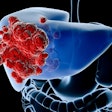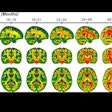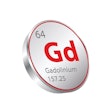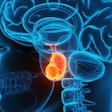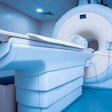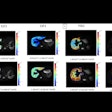MRI can help predict the scope of any residual tumor left after preoperative therapy in breast cancer patients, according to a new study published in the July issue of the American Journal of Roentgenology. But it has its limits when predicting the complete disappearance of breast cancer at the lesion site.
In a meta-analysis, researchers at the Changzheng Hospital in Shanghai, China, found that MRI has a high specificity (90.7%) -- but relative lower sensitivity (63.1%) -- in predicting pathologic complete remission after preoperative therapy (AJR, July 2010, Vol. 195:6, pp. 260-268).
"Our results, together with those of previous reports, show that breast MRI is a highly accurate method of predicting residual tumor extent after preoperative therapy," wrote lead author Ying Yuan, MD, and colleagues. "[But] on the basis of the relatively low sensitivity of MRI in predicting pathologic complete remission after preoperative therapy, breast radiologists should be more cautious in reporting complete remission at MRI and should give more importance to 'minimal signs' after preoperative therapy."
Yuan and colleagues examined 25 studies, which included data from 1,212 patients, in the meta-analysis. Pooled weighted estimates of sensitivity and specificity were 0.63 and 0.91, respectively; heterogeneity between studies was influenced by the pathologic complete remission rate. In a subgroup analysis of studies with pathologic complete remission rates higher or lower than 20%, a statistically significant difference was found in specificity only, suggesting that MRI has a higher specificity in groups with pathologic complete remission rates lower than 20%, the team found.
The lower sensitivity finding could be attributed to the effect of preoperative therapy, which reduces the enhancement of the tumor tissue, according to the group.
"When antiangiogenic drugs are used, the damaged tumor vessels may affect the delivery of MRI contrast agents, thus leading to underestimation of residual disease," they wrote. "Preoperative therapy integrating antiangiogenesis drugs can break the tumor down into cells or cell clusters, which may not need the vascular supply to survive ... this cellular tumor breakdown can cause difficulty in the detection of residual disease with contrast-enhanced MRI."
The study findings are important because accurate prediction of the complete disappearance of invasive breast cancer in the primary tumor area could define a subset of women who can undergo successful breast-conserving therapy and enjoy better long-range outcomes.
"Patients who achieve pathologic complete remission ... after preoperative therapy have a better prognosis than those who do not," Yuan and colleagues wrote. "Studies have shown that MRI can determine response to chemotherapy treatment more accurately than mammography, ultrasound, and clinical examination, and now extensive research has been done on the performance of MRI in evaluating the efficacy of preoperative therapy in patients with breast cancer."
But because the sensitivity is relatively lower, Yuan's team suggested that further study is needed.
"The performance of breast MRI is influenced by the pathologic complete remission rate of preoperative therapy regimens, so it will be worthwhile to determine the associated biologic mechanisms and to perform further studies to validate the predictive power of breast MRI in patients with breast cancer who received preoperative therapy," they concluded.
By Kate Madden Yee
AuntMinnie.com staff writer
June 21, 2010
Related Reading
Lesions 'probably benign' on breast MRI may not need biopsy, May 27, 2010
MRI useful in detecting additional breast cancer, June 13, 2008
Breast MRI with USPIO contrast helps assess lymph node metastases, April 25, 2008
MRI beats mammography, US in detecting breast cancer in high-risk women, March 12, 2008
Catching undetected cancer with MR plus mammo in high-risk women outweighs costs, December 17, 2007
Copyright © 2010 AuntMinnie.com




.fFmgij6Hin.png?auto=compress%2Cformat&fit=crop&h=100&q=70&w=100)


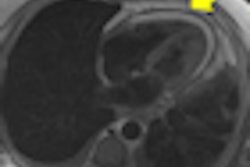
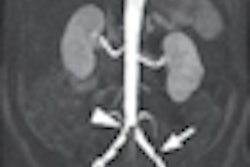
.fFmgij6Hin.png?auto=compress%2Cformat&fit=crop&h=167&q=70&w=250)




